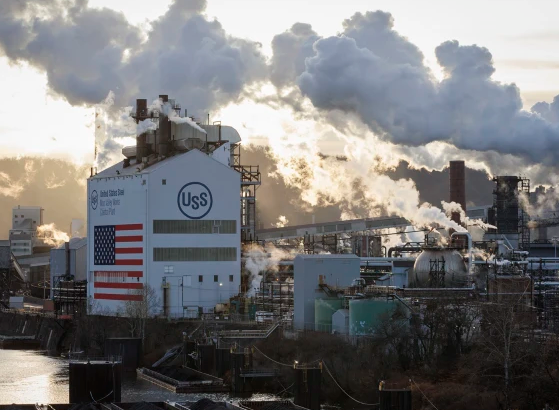 President Joe Biden invoked a rarely-used presidential power to prevent the Japanesesteel giant Nippon Steel from purchasing the United States Steel Corporation, citing the $14.1 billion deal’s potential consequences to American national security after a year-long review process.
President Joe Biden invoked a rarely-used presidential power to prevent the Japanesesteel giant Nippon Steel from purchasing the United States Steel Corporation, citing the $14.1 billion deal’s potential consequences to American national security after a year-long review process.
The long-awaited decision to prohibit the transition, which would have placed America’s largest steel-making enterprise under foreign control, blocks Nippon Steel and its’ American affiliates from any attempt to acquire control of the Pittsburgh-based U.S. Steel.
It comes after a inter-agency committee charged with reviewing overseas business acquisitions of American businesses and other transactions with national security implications failed to reach a decision on whether to recommend approval or prohibition of the merger.
The review had been ongoing since the deal was first announced last December, though both Biden and President-elect Donald Trump had each pledged to keep the deal from going through.
In a statement, Biden cited the need to keep steel production, which he described as “the backbone of our nation,” fully in American hands because it “represents an essential national security priority and is critical for resilient supply chains.”
Biden also noted that U.S. Steel and its’ American competitors have long had to deal with unfair trade practices including Chinese dumping of cheap foreign steel into the U.S. market at prices that are unfairly low in order to undermine domestic manufacturing.
He recalled how he’d tripled tariffs on imported steel first imposed during Donald Trump’s first term and said that “decisive action” had helped American steelmakers to open more than 100 new steel and iron mills over his own four-year term.
“We need major U.S. companies representing the major share of US steelmaking capacity to keep leading the fight on behalf of America’s national interests,” Biden said, adding later that the inter-agency committee — known as CFIUS — had found that the proposed takeover of U.S. Steel by Nippon Steel could “create risk for our national security and our critical supply chains.”

